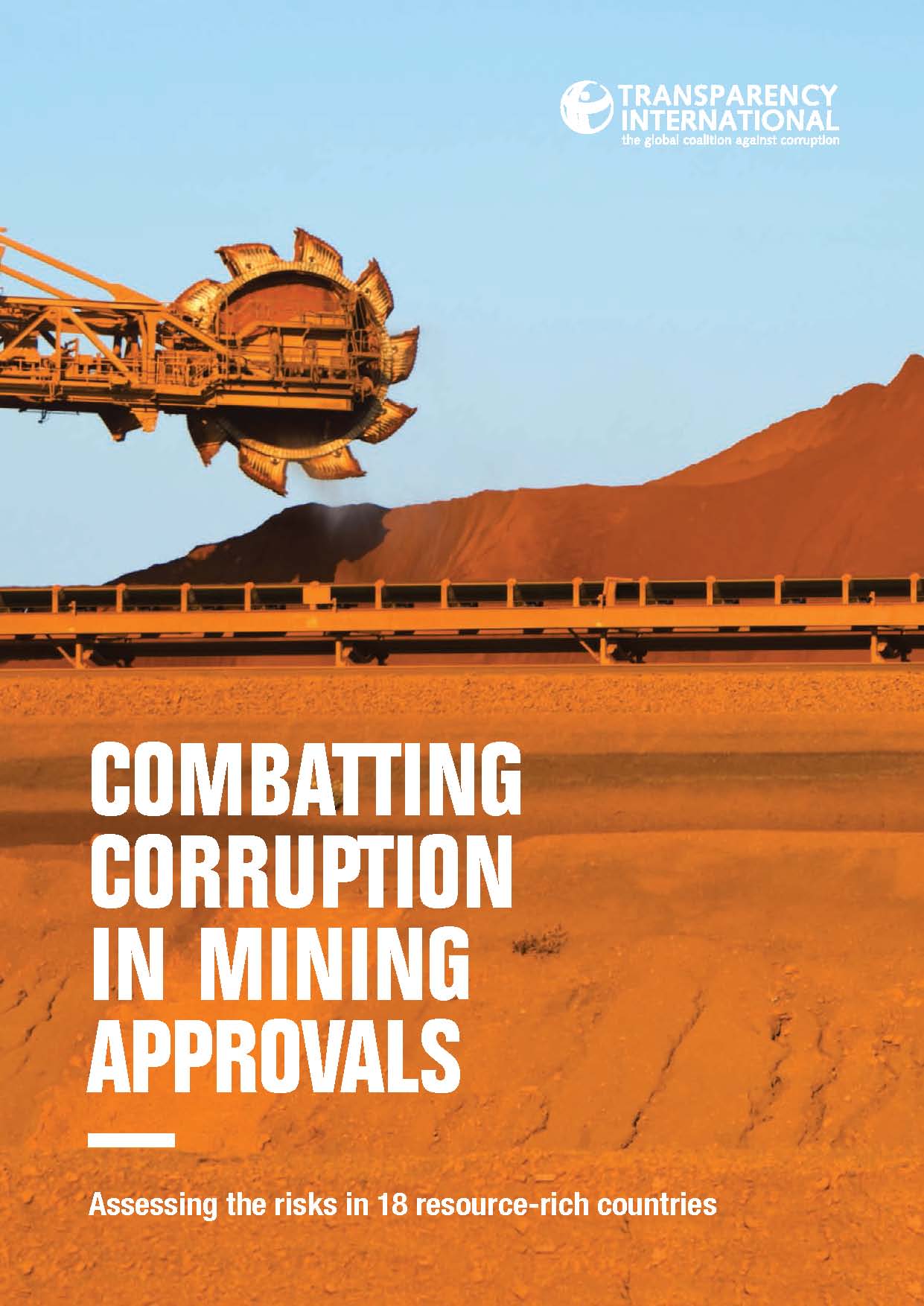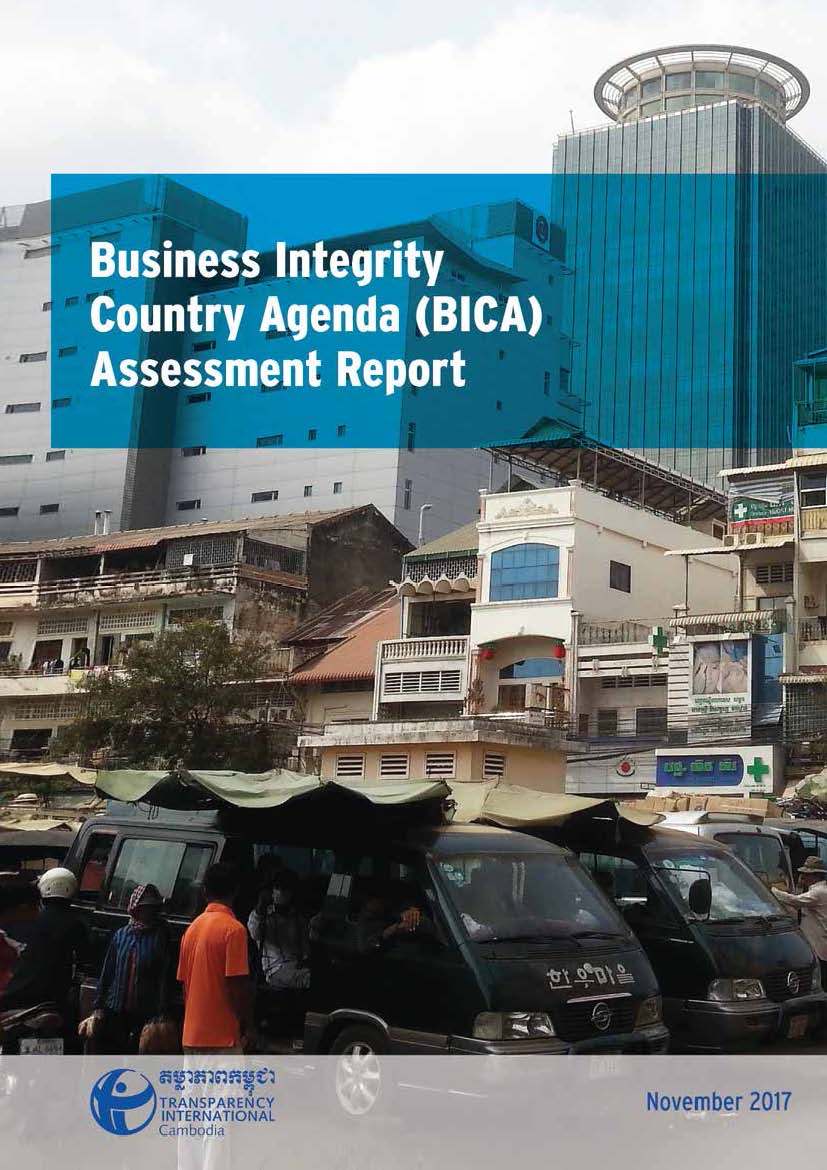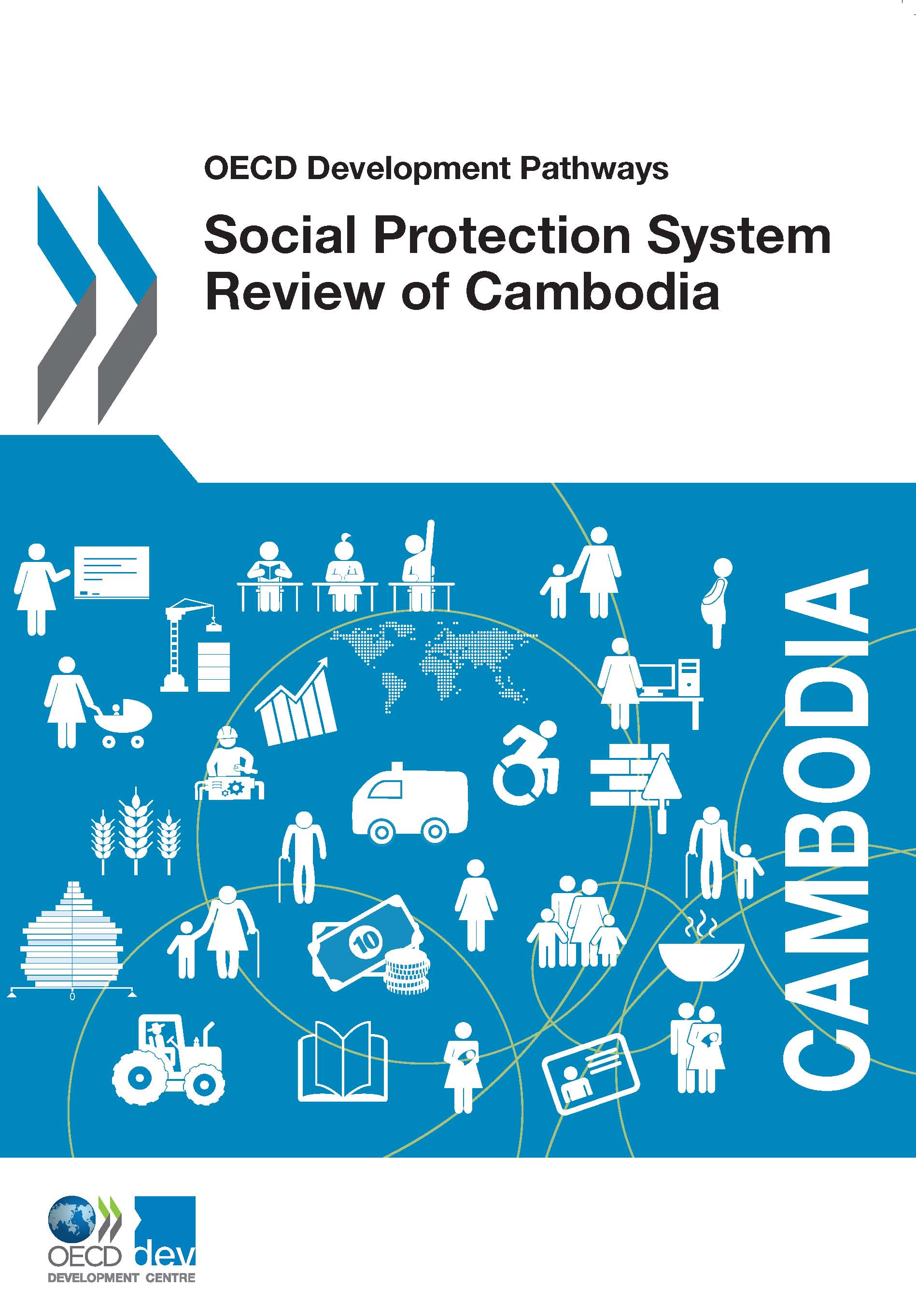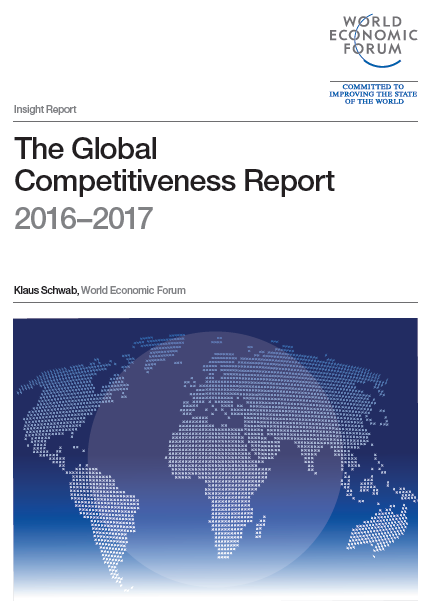
Business Brief
Publication Year: 2017 / Sources: Transparency International CambodiaBusiness Brief is a brief report about business sector in Cambodia. The report aims to equip reader with more insightful understanding toward doing business in Cambodia.
Download: English | Khmer
Case Study: Tax System in Cambodia
Publication Year: 2016 / Sources: Transparency International CambodiaCambodia, like many other developing countries, struggles with social equity issues that lead to corruption amongst public officials who require informal payments to provide a sufficient income for their families. Ultimately, corruption by public officials remains a major constraint for businesses operating in Cambodia. Cambodia’s registration process is classified as corrupt and inefficient.
Download: English | Khmer
Combatting Corruption in Mining Approvals
Publication Year: 2017 / Sources: Transparency InternationalCombatting Corruption in Mining Approvals (Assessing the risks in 18 resource-rich countries)
Transparency International has assessed the risks that can lead to corruption in 18 resource-rich countries to identify the warning signals as early as possible. This report demonstrates where and how corruption can get a foothold in mining approvals processes before ground is even broken. It presents examples from a range of diverse countries and identifies important roles for government, the mining industry and civil society to identify, prevent and mitigate these risks.
Download: English | Khmer
Business Intergrity Country Agenda Assessment Report
Publication Year: 2017 / Sources: Transparency International CambodiaThe BICA Assessment Report is a baseline assessment of public, private and civil society sector efforts to promote business integrity, particularly accountability, transparency, and integrity in business practices. This report seeks to further understand the factors and actions that can increase business integrity in Cambodia, in order to facilitate public, private, and civil society efforts to diminish corruption.
Download: English | Khmer
Social Protection System Review of Cambodia
Publication Year: 2017 / Sources: Transparency International CambodiaIn 2017, the Royal Government of Cambodia published a new Social Protection Policy Framework (SPPF), providing an ambitious vision for a social protection system in which a comprehensive set of policies and institutions operate in sync with each other to sustainably reduce poverty and vulnerability.The Social Protection System Review of Cambodia prompts and answers a series of questions that are crucial for the implementation ofthe framework : How will emerging trends affect the needs for social protection, now and into the future? To what extent are Cambodia’s social protection instruments able – or likely – to address current and future livelihood challenges? How does fiscal policy affect social protection objectives?
This review provides a contribution to the ongoing policy dialogue on social protection, sustainable growth and poverty reduction. It includes four chapters. Chapter 1 is a forward-looking assessment of Cambodia’s social protection needs. Chapter 2 maps the social protection sector and examines its adequacy. An investigation of the distributive impact of social protection and tax policy is undertaken in Chapter 3. The last chapter concludes with recommendations for policy strategies that could support the establishment of an inclusive social protection system in Cambodia, as envisaged by the SPPF.
Download: English | Khmer
Full Report: Cambodia’s Mineral Exploration Licensing Process: Governance Risk Assessment
Publication Year: 2017 / Sources: Transparency International CambodiaThis Governance Risk Assessment was conducted as part of Transparency International’s Mining for Sustainable Development (M4SD) Programme. The aim of this study is to identify the systemic, regulatory and institutional vulnerabilities to malpractice in awarding mining and mining-related licences, permits and contracts. The study will also assess the specific governance risks created by these vulnerabilities and present recommendations. This report presents the main findings from the research and the results of the risk assessment.
Download: English | Khmer
Business Brief
Publication Year: 2017 / Sources: Transparency International CambodiaTI Cambodia’s Business Integrity Programme’s Business Briefs, provide valuable information for companies seeking to improve their business integrity policies. Interested in knowing more about Gifts, Hospitality, Whistleblower, Facilitation Payment, and Conflict of Interest Policies for your company? Not only do the Business Briefs explain why the policies are important, but also offer key points that should be included in the policy. All together, the Business Briefs highlight 4 important policies that every business should have, and how to effectively incorporate these policies and principles into a company’s internal policies. Interested in getting a copy for your business? Contact us via pidorchhay@ticambodia.org
Download: English | Khmer
Tourism Sector Assessment, Strategy, and Road Map for Cambodia, Lao PDR, Myanmar, and Viet Nam (2016-2018)
Publication Year: 2017 / Sources: ASIAN Development BankThis sector assessment, strategy, and road map (ASR) documents strategic investment priorities of the Asian Development Bank (ADB) and the governments of Cambodia, the Lao People’s Democratic Republic (Lao PDR), Myanmar, and Viet Nam in the tourism sector.1 It highlights sector performance, priority development constraints, government plans and strategies, past ADB support and experience, other development partner support, and ADB’s future tourism support strategy for Cambodia, the Lao PDR, Myanmar, and Viet Nam (CLMV). The ASR is linked to and informs ADB country partnership strategies for CLMV. It will be updated as strategic developments and program changes are needed and will help to provide sector background information for investment and technical assistance operations.
Download: English | Khmer
Doing Business 2017 (Cambodia Profile): Equal Opportunity for All
Publication Year: 2017 / Sources: World Bank GroupDoing Business sheds light on how easy or difficult it is for a local entrepreneur to open and run a small to medium-size business when complying with relevant regulations. It measures and tracks changes in regulations affecting 11 areas in the life cycle of a business: starting a business, dealing with construction permits, getting electricity, registering property, getting credit, protecting minority investors, paying taxes, trading across borders, enforcing contracts, resolving insolvency and labor market regulation.
Download: English | Khmer
The Global Competitiveness Report 2016-2017
Publication Year: 2016 / Sources: Klaus Schwab, World Economic ForumCambodia ranks 89th, up one position from last year. Among Asian nations, it is the one that has posted the largest GCI score improvement—from 3.5 to 4.0—since 2007. Despite the positive trend, the challenges are many and significant. Cambodia ranks no better than 50th in any of the 12 pillars of the Index; in half of them it sits beyond the 100th mark. Of particular concern is its mediocre performance in three of the four areas that constitute the basic drivers of competitiveness: institutions (104th, up seven), infrastructure (106th, down five), and health and primary education (103rd, down 16). Moreover, Cambodia ranks 124th in higher education and training, its poorest performance in any pillar. It is estimated that secondary education enrollment is around 50 percent. With a median age of 23.8, Cambodia is home to one of the youngest populations in Asia. Ensuring access to quality of education for all should therefore be a policy priority.
Download: English | Khmer